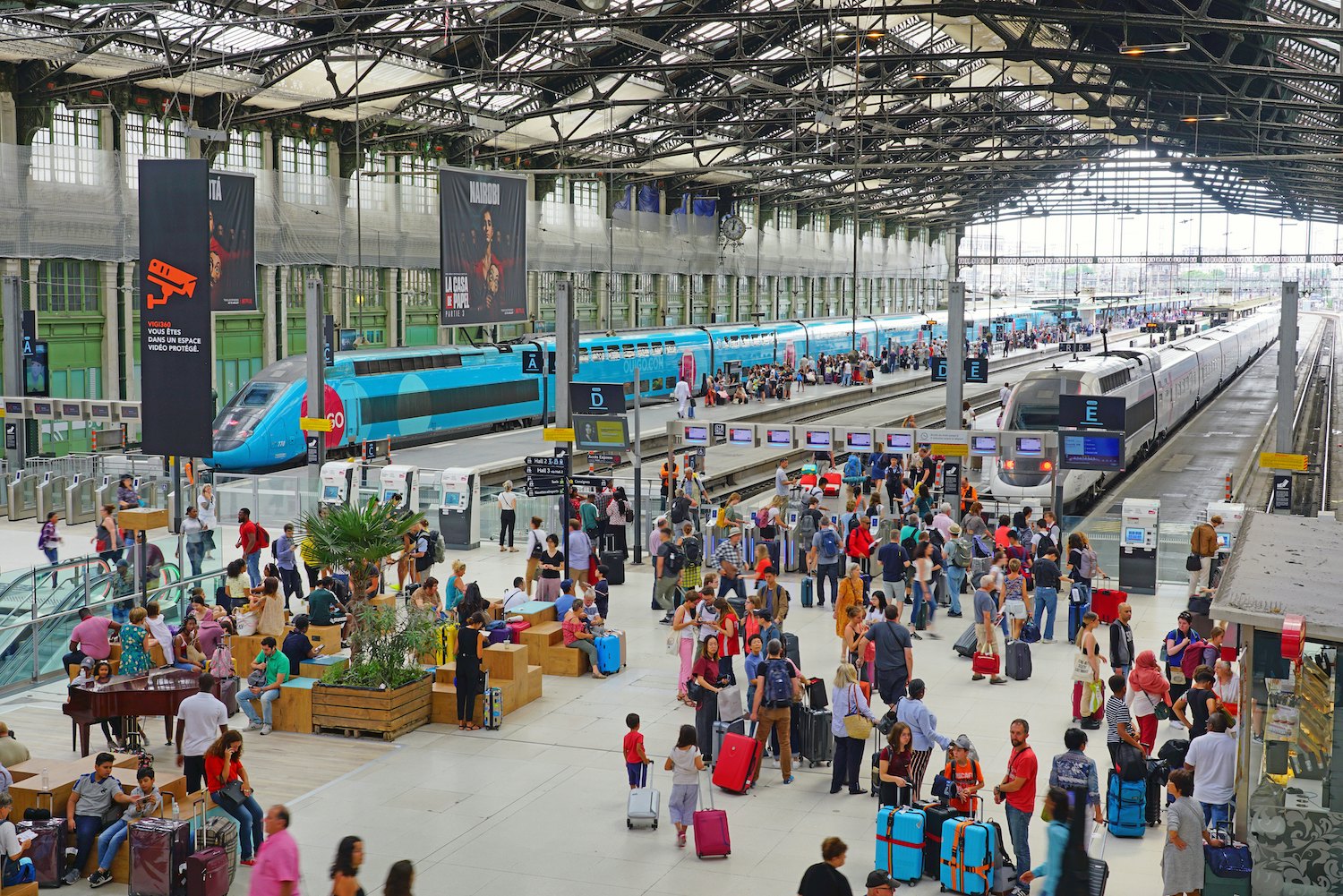France has banned some short flights - what does this mean for travelers?

May 24, 2023 • 4 min read

France will roll out its no-domestic-flights policy by banning three routes initially – with more to come © Krisztian Bocsi / Bloomberg / Getty Images
C'est officiel! To cut carbon emissions, France has banned short-range domestic flights across some routes where the same journeys can be made by train.
Two years after proposing the policy, France has now canceled some short-haul domestic flights for good. The ban was approved by the European Commission in December and eventually signed into the country's Climate Law on Tuesday, May 23.
The ban cancels flight journeys that can be completed by train in less than two-and-a-half hours.
So how, exactly, does the new policy affect travelers?
Which routes will the ban cover?
The ban only applies to three routes: flights from Paris' Orly airport to Bordeaux, Lyon and Nantes. However, passengers can still get air connections on to these regional capitals from Paris' (and France's) main airport, Charles de Gaulle. You can even still travel by plane between two cities within the country – although a fast and convenient high-speed train is almost certainly faster and easier.
If the concept is judged successful and rail services improve nationwide, then more flight routes will be banned.

Why is the ban being introduced?
As part of far-reaching 2021 climate legislation, France proposed banning domestic flights where equivalent journeys taking less than two-and-a-half hours on its excellent and wide-ranging rail network are available. This policy has now been approved by the European Commission, and on Tuesday, it was signed into France's Climate Law.
Over nearly 40 years of service, France's high-speed TGV network has expanded to reach north, south, east, and west of Paris – all directions of the country. Trains between major city centers are frequent, convenient and inexpensive, meaning most intercity passengers are already used to taking the train.

What train routes can passengers take instead? And what is France doing to improve its rail network?
If you want to travel from central Paris to Bordeaux, Lyon and Nantes, you are probably already planning on using its excellent rail network (SNCF).
Flying requires getting from central Paris to the airport, checking in, clearing security, queuing at the gate before your departure and taxiing – not to mention suffering through potential weather delays. In an equivalent time frame, you likely could have already arrived at your destination's central station, having enjoyed a restful trip gazing at the beautiful French countryside from the wide windows of a TGV.
From cheapest to most expensive, the SNCF's high-speed train ticket options are:
Low-cost, high-speed Ouigo (pronounced "we go") trains, which start at just €10 from Paris to Lyon before you add options like a larger piece of luggage or an assigned seat.
Second (standard) class on the regular high-speed TGV (sometimes but not always called inOui – pronounced "in we") trains, where you can take a larger suitcase and choose your seat by default.
First class on the regular TGV, which is surprisingly affordable compared with business-class flying, and offers larger seats with extra legroom and more comfort.
On some routes, you can also take a night train (Intercité de Nuit), or slower conventional trains called Intercités. Ouigo also offers these conventional trains on a couple of routes, including to the lower Loire Valley, with its famous wine towns and châteaux, and to the wine-growing region of Burgundy.
What are the challenges to the short-term flight ban?
Airport trade associations in France and Europe pushed back hard against the move, which will be reviewed in the next three years. Yet it seems likelier than not that the ban will eventually be expanded to cover more routes in three years rather than rescinded.
The European Commission approved banning the three Orly flights, from an original request to ban eight routes total (the five remaining domestic routes are between Charles de Gaulle and Lyon, Rennes, Bordeaux and Nantes; and between Marseille and Lyon).
To sum up a highly complex set of discussions: the other routes were either just over two-and-a-half hours (Paris to Marseille by high-speed train takes just three hours - but it still didn't make the cut) or didn't have enough rail service throughout the day to meet the agreed-upon criteria.
But with consciousness growing over the environmental impact of aviation, we'd expect restrictions like these to be expanded to encompass longer rail journey times (four hours seems likely and reasonable) and destinations that receive improved rail connections.
And while the government is heralding the ban as a step in the right direction, with France's transport minister Clement Beaune claiming it's an "essential step and a strong symbol in the policy of reducing greenhouse gas emissions." However, some critics argue that it doesn't go far enough.
Laurent Donceel, interim head of industry group Airlines for Europe, told AFP on Tuesday that governments should support "real and significant solutions" to combat airline emissions rather than "symbolic bans."






